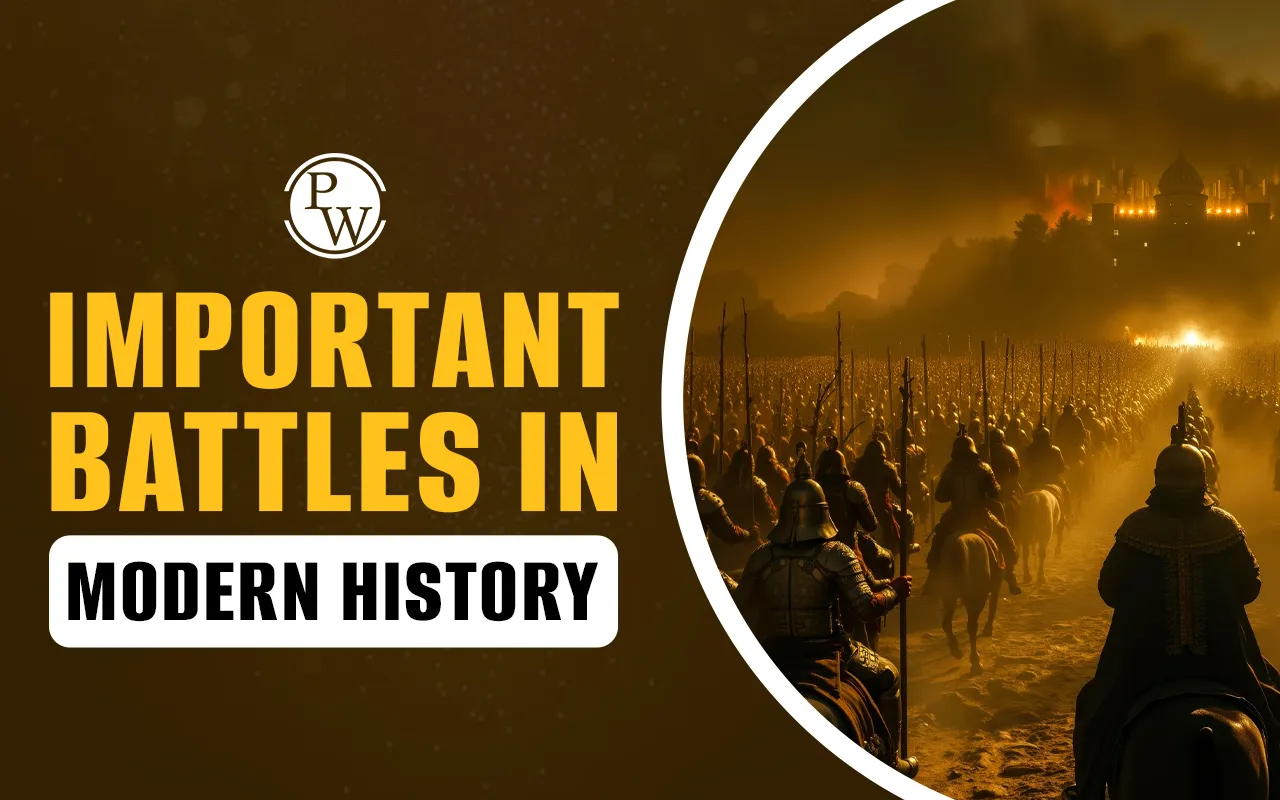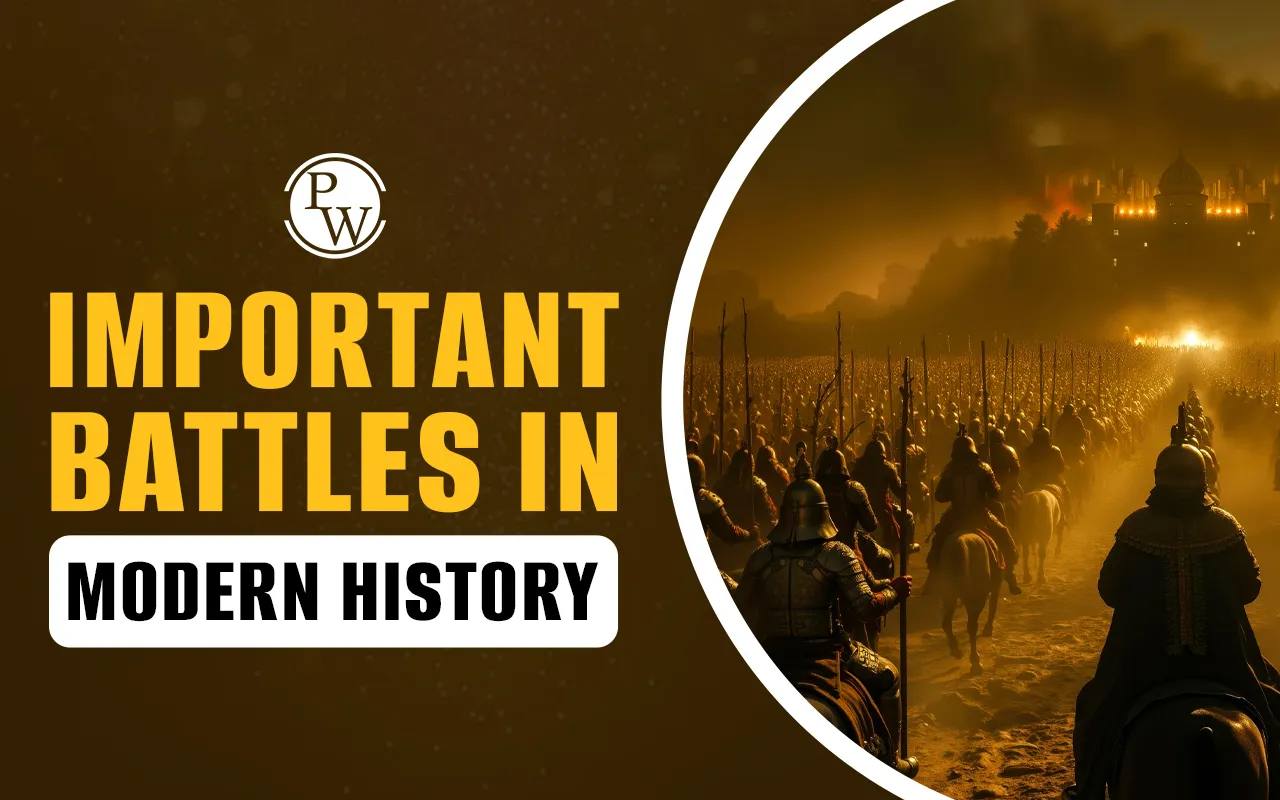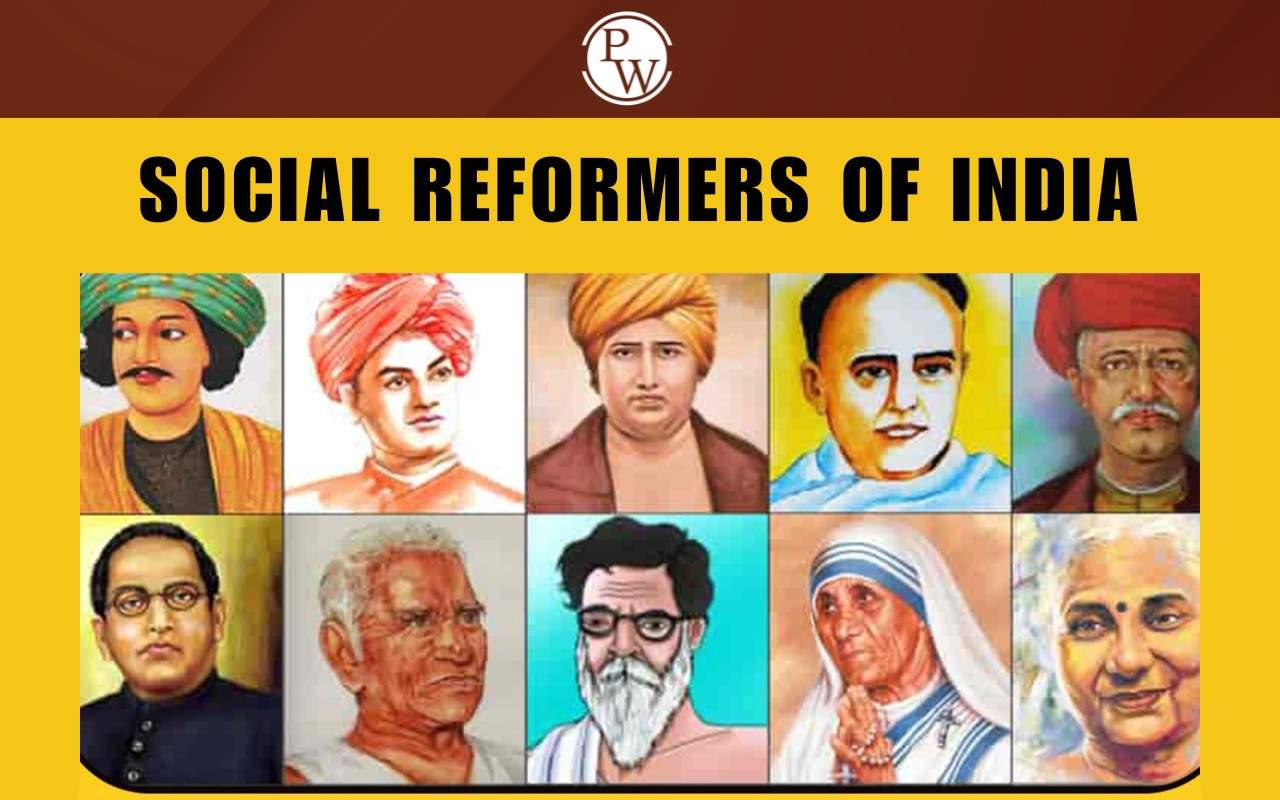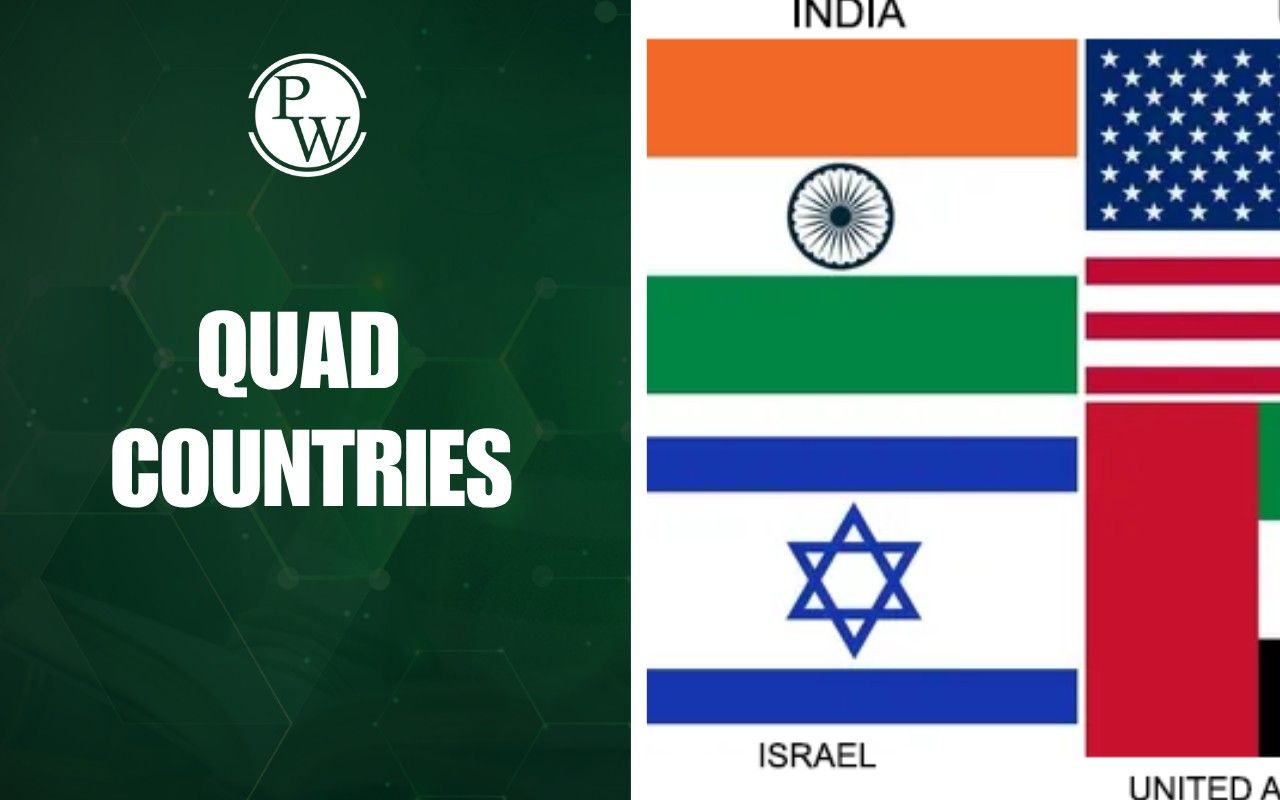

Important battles in modern history of India have defined the political, social, and economic landscape of the country. Starting from the later Mughal and regional rule to the British colonial period, these battles in modern Indian history determined the fate of the subcontinent.
Many of these important battles in modern history were fought between Indian rulers, European colonial powers, and indigenous resistance movements. Read on to learn more about the important battles in modern Indian history for UPSC exam.
Important Battles in Modern Indian History
Modern Indian history witnessed several battles that significantly influenced territorial control, governance, and India’s transition into British rule. These battles also highlight the resistance by Indian rulers against colonial expansion. Here is a list of key battles in the modern history of India:
Carnatic Wars (1746-1763)
These wars were fought between the British and the French for supremacy in South India. By the end of the Carnatic Wars (1746–1763), the British had emerged victorious, establishing their dominance over the region. Here is the summary of these battles:
| War | Year | Outcome |
| First Carnatic War | 1746-1748 | Treaty of Aix-la-Chapelle (status quo maintained) |
| Second Carnatic War | 1749-1754 | British victory; Dupleix removed from India |
| Third Carnatic War | 1756-1763 | British defeated the French; Treaty of Paris (1763) |
Battle of Plassey (1757)
-
Combatants: British East India Company vs. Nawab of Bengal (Siraj-ud-Daulah) and French allies
-
Outcome: British victory; beginning of British dominance in India
-
Significance:
-
Marked the start of British rule in India.
-
Allowed the British to control Bengal's revenue system, leading to economic exploitation.
-
Exposed the role of betrayal (Mir Jafar sided with the British), highlighting internal political weaknesses.
Also Read, ‘Important Battles in Indian History’
Battle of Buxar (1764)
-
Combatants: British East India Company vs. Mughal Emperor Shah Alam II, Nawab of Oudh, and Nawab of Bengal
-
Outcome: British victory; Treaty of Allahabad (1765) signed
-
Significance:
-
Established British control over Bengal, Bihar, and Odisha.
-
The Mughal Emperor became a puppet under British influence.
-
British acquired the right to collect revenue (Diwani Rights), making them the dominant power in India.
Third Battle of Panipat (1761)
-
Combatants: Maratha Empire vs. Durrani Empire (Ahmad Shah Abdali)
-
Outcome: Durrani victory; Maratha power weakened
-
Significance:
-
One of the bloodiest battles in Indian history.
-
Severely weakened Maratha influence in North India.
-
Opened the door for British expansion, as Indian powers weakened.
Anglo-Mysore Wars (1767-1799)
The four Anglo-Mysore Wars were fought between the Kingdom of Mysore and the British East India Company. Tipu Sultan, known as the "Tiger of Mysore," fiercely resisted British expansion following his father’s footsteps. Here is the summary of each war:
| War | Year | Rulers Involved | Outcome |
| First Anglo-Mysore War | 1767-1769 | Hyder Ali vs. British | Treaty of Madras |
| Second Anglo-Mysore War | 1780-1784 | Hyder Ali and Tipu Sultan vs. British | Treaty of Mangalore |
| Third Anglo-Mysore War | 1790-1792 | Tipu Sultan vs. British | Treaty of Seringapatam (British victory) |
| Fourth Anglo-Mysore War | 1799 | Tipu Sultan vs. British | Tipu Sultan was killed; British annexed Mysore |
Anglo-Maratha Wars (1775-1818)
These wars were fought between the Marathas and the British in three phases. The Marathas were one of the last major Indian powers to challenge British expansion. Here is the summary of Anglo-Maratha Wars:
| War | Year | Outcome |
| First Anglo-Maratha War | 1775-1782 | Treaty of Salbai (peace between British and Marathas) |
| Second Anglo-Maratha War | 1803-1805 | British gained control over Delhi, Agra, and parts of central India |
| Third Anglo-Maratha War | 1817-1818 | Maratha Confederacy was dissolved; British gained full control over India |
Anglo-Burma Wars (1824-1885)
The Anglo-Burma Wars were a series of three wars fought between the British Empire and the Kingdom of Burma (present-day Myanmar) in the 19th century. These wars were driven by British imperial ambitions to expand their influence in Southeast Asia and secure strategic territories.
| War | Year | Outcome |
| First Anglo-Burma War | 1824-1826 | British annexed Assam, Manipur, and Arakan |
| Second Anglo-Burma War | 1852 | British annexed Lower Burma |
| Third Anglo-Burma War | 1885 | British annexed Upper Burma, making it a part of British India |
Anglo-Afghan Wars (1839-1919)
The Anglo-Afghan Wars were a series of three wars fought between the British Empire and the Kingdom of Afghanistan in the 19th and early 20th centuries, mainly to control Afghanistan as a buffer state.
| War | Year | Outcome |
| First Anglo-Afghan War | 1839-1842 | British defeat, withdrawal from Afghanistan |
| Second Anglo-Afghan War | 1878-1880 | British gained influence but later withdrew |
| Third Anglo-Afghan War | 1919 | Afghanistan gained full independence |
Anglo-Sikh Wars (1845-1849)
The Anglo-Sikh Wars were a series of two wars fought between the British East India Company and the Sikh Empire in the 19th century.
-
First Anglo-Sikh War (1845-1846): British victory; Treaty of Lahore signed
-
Second Anglo-Sikh War (1848-1849): British annexed Punjab, ending Sikh rule
These wars played a crucial role in the annexation of the Sikh Empire and the expansion of British rule in northern India.
Revolt of 1857 (First War of Independence)
-
Combatants: Indian soldiers (sepoys) vs. British East India Company
-
Outcome: British suppressed the revolt; end of Mughal rule
-
Significance:
-
Marked the beginning of India's struggle for independence.
-
Led to the dissolution of the British East India Company.
-
The British Crown took direct control over India (Government of India Act 1858), leading to major administrative changes.
Battle of Kohima and Imphal (1944)
-
Combatants: British Indian Army vs. Japanese Army and INA (Azad Hind Fauj)
-
Outcome: British victory; halted Japanese advance into India
-
Significance:
-
Considered one of the greatest battles of World War II.
-
Ended Japanese hopes of invading India.
-
Strengthened British hold in India but also boosted Indian nationalist movements.
Role of Famous Battles in Modern History
The history of modern India is marked by a series of important battles fought for various reasons—some for the protection of the land, others for the quest for independence, and some for the defense of political ideologies. Here’s why these battles were significant in modern Indian history:
-
Impact on Colonial Power Struggles: Battles like Plassey and Buxar marked the beginning of British control in India, which lasted for nearly two centuries.
-
Colonial Expansion: The British gradually eliminated major Indian powers like the Mughals, Marathas, Mysore, and Sikhs, consolidating their control.
-
Economic Exploitation: Victories in battles like Plassey and Buxar gave the British financial control, leading to economic drain and revenue manipulation.
-
Cultural and Ideological Shifts: The introduction of British rule led to the imposition of Western ideals and systems of governance, education, and religion, which influenced Indian society and its traditional practices.
-
Nationalist Awakening: Battles during the First War of Indian Independence (1857) were key moments in India’s fight for freedom. It sparked a sense of unity and resistance that later fueled the independence movement.
UPSC PYQs on Important Battles in Modern History
The UPSC exams often include questions related to important battles in modern history, especially those that had a significant impact on India's political, social, and economic development. Here are some of previous years' questions (PYQs) related to important battles in modern history that have appeared in UPSC:
In conclusion, the important battles in modern history of India were turning points that defined India’s colonial past and independence movement. These wars influenced governance, administration, and resistance efforts. To learn in detail about Indian history, explore Physics Wallah's UPSC courses and strengthen preparation!
Important Battles in Modern History of India FAQs
Which battle marked the beginning of British rule in India?
What was the impact of the Third Battle of Panipat?
How did the Anglo-Sikh Wars affect India?
Which is the biggest battle in the Modern Indian history?
Why was the Revolt of 1857 significant?













